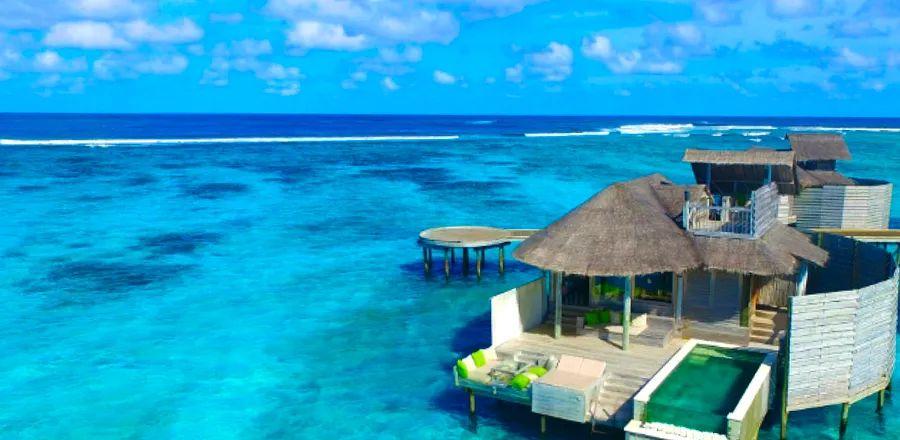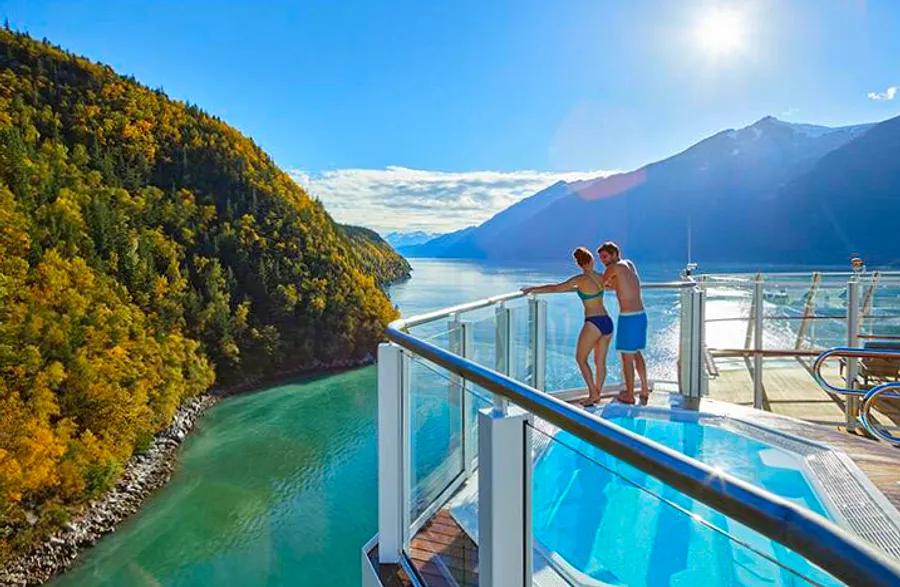Your Upcoming Coastal Getaway Could Contribute to Ocean Conservation

Think about this: Coastal and marine tourism represents at least 50 percent of global tourism. It serves as the primary economic driver for many coastal communities and small islands, from the Philippines to coastal Maine. A report from the Ocean Panel, established in 2018 by global leaders to promote a sustainable ocean economy, found that tourism accounts for nearly half of the ocean economy’s $2.5 trillion in economic output, with expectations for growth in the future. Furthermore, the ocean sustains hundreds of millions daily and acts as the planet's largest carbon sink, with plankton producing more than half of our oxygen. Many travelers turn to coastal experiences for rejuvenation and reflection.
Despite our reliance on the planet’s largest ecosystem, vast areas of the ocean remain unprotected, and unsustainable tourism practices like overtourism and inadequate waste management continue to harm the very attractions people pay to experience, as noted by Ocean Panel experts. Conservation International reports a staggering 50 percent decline in marine species populations over the last four decades. For vulnerable island nations like the Maldives, rising sea levels and coral bleaching pose critical threats due to climate change.
However, the chorus advocating for ocean conservation is growing louder. In March 2023, the landmark United Nations High Seas Treaty was established to safeguard marine biodiversity in international waters outside national jurisdiction, aiming to protect 30 percent of the ocean by 2030. Travelers are increasingly committed to its preservation, as seen in organizations like the nonprofit Surfrider Foundation, which unites activist surfers, divers, and beach lovers.

Image courtesy of Turtle Bay Resort
Hope for a brighter future for our oceans?
Peter Schuhmann, an economics professor at the University of North Carolina in Wilmington, argues that resilient tourism—characterized by environmental, cultural, and economic sustainability—offers an untapped path toward a sustainable ocean economy, emphasizing that travelers are essential agents of change. They require support from governments and industry leaders to enable their efforts.
“Research indicates that travelers are increasingly seeking sustainable tourism options that reflect their values,” he stated during an Ocean Panel webinar in early 2023. “Tourists want to contribute positively, but we need to provide them with the means to do so.”
In late 2017, the Republic of Palau—an island nation in Micronesia—implemented a pioneering visitor policy called the Palau Pledge, asking visitors to commit to ecological and cultural responsibility during their stay. Other countries have followed suit, including New Zealand with its Tiaki Promise, encouraging visitors to act as respectful stewards. In 2021, Hawai‘i banned sunscreens containing oxybenzone and octinoxate, deemed harmful to marine ecosystems, and continues to collaborate with organizations like the Coral Reef Alliance to preserve and restore reef systems.
On the Caribbean island of Bonaire, the Bonaire National Marine Park stands out as one of the few marine protected areas in the region that is almost entirely funded by user fees. As of January 2023, the cost is a flat rate of $40 per person for non-residents. Since the 1990s, Bonaire has gathered its own data to gauge how much visitors are willing to pay to enjoy the park's natural wonders, and this revenue directly supports the park. This model has been successfully adopted in other island destinations such as Fiji, Indonesia, Hawai‘i, and Honduras.

Image courtesy of Six Senses Laamu
Luxury hotels are increasingly adopting sustainable practices
An expanding number of hotels and resorts situated in marine environments are striving to create business models that are resilient for the environment, communities, and local economies. These initiatives do not compromise luxury; for instance, some of the most aesthetically striking retreats on Bali, known for its severe waste issues, are redefining sustainable hospitality as trendy. The island’s Potato Head Studios features ceilings made of woven recycled plastic and chic terrazzo floors crafted from broken bricks and waste concrete. In January 2023, the stylish Playa Viva in Mexico received recognition from the B Corporation nonprofit for its environmentally conscious practices and positive impact on local communities. Meanwhile, on the Island of Hawai‘i, Four Seasons Hualalai implements a wide array of sustainability and social responsibility measures, sourcing an impressive 75 percent of its restaurant food locally—no small feat in a place where many products must be imported.
Following a recent visit to the Maldives, Conservation International CEO M. Sanjayan shared insights with Dinogo about his experiences in this nation, known as the world’s second most tourism-dependent country. Being a low-lying atoll, it faces significant threats from climate change.
While he recognizes the environmental toll of air travel to the Maldives and the construction of luxury accommodations, he believes that tourism can lead to solutions for preserving both the destination and the broader ocean ecosystem.
He noted that Six Senses Laamu, where he was hosted, is pioneering coral restoration research at the atoll level, moving beyond traditional coral replanting methods that are often difficult to scale. Travelers can engage in sustainability initiatives, including volunteering for sea turtle conservation and reef restoration. “The approach Six Senses is taking [in the Maldives], focusing on sustainability while being ocean and reef positive, serves as a model that others might adopt,” he remarked.
As more luxury resorts integrate sustainable hospitality into their operations, Dinogo has highlighted 15 beach resorts globally that are making significant strides in becoming better stewards of the ocean habitats essential for both their sustainability and that of their visitors. Discover our full list here.
Evaluation :
5/5



